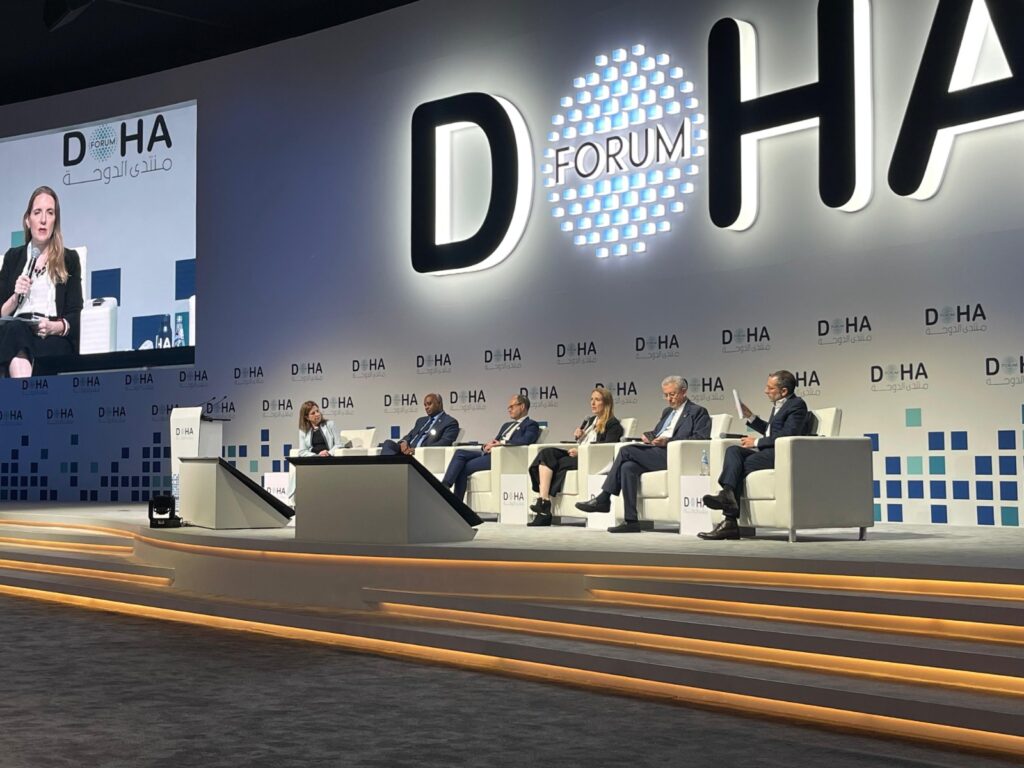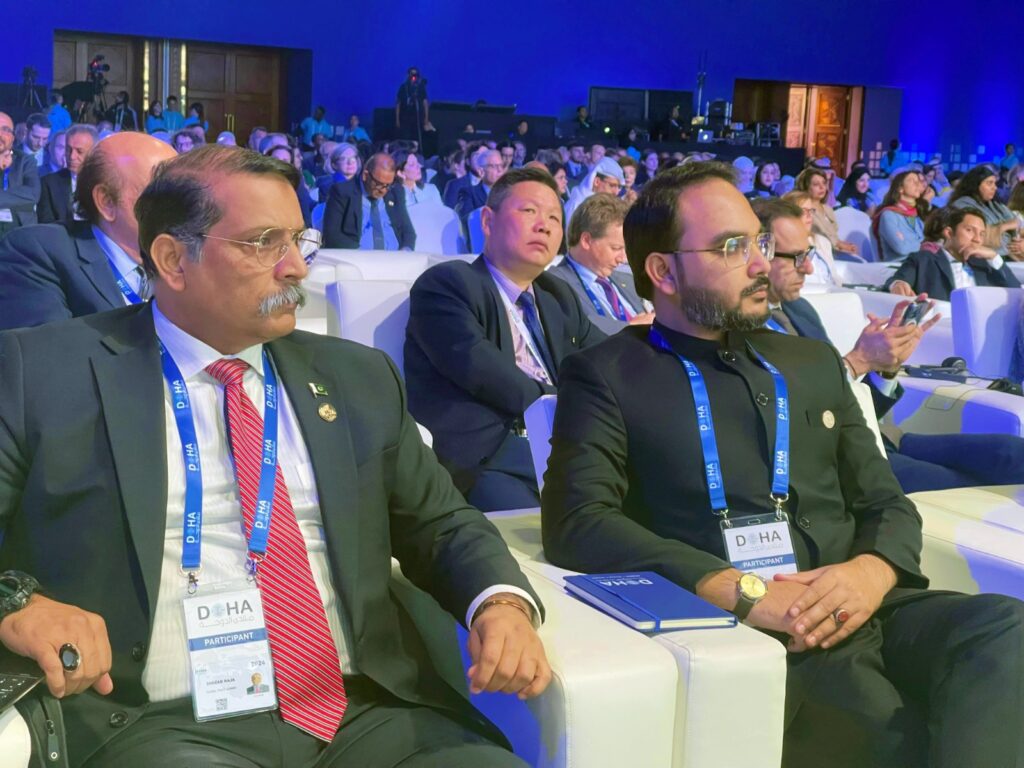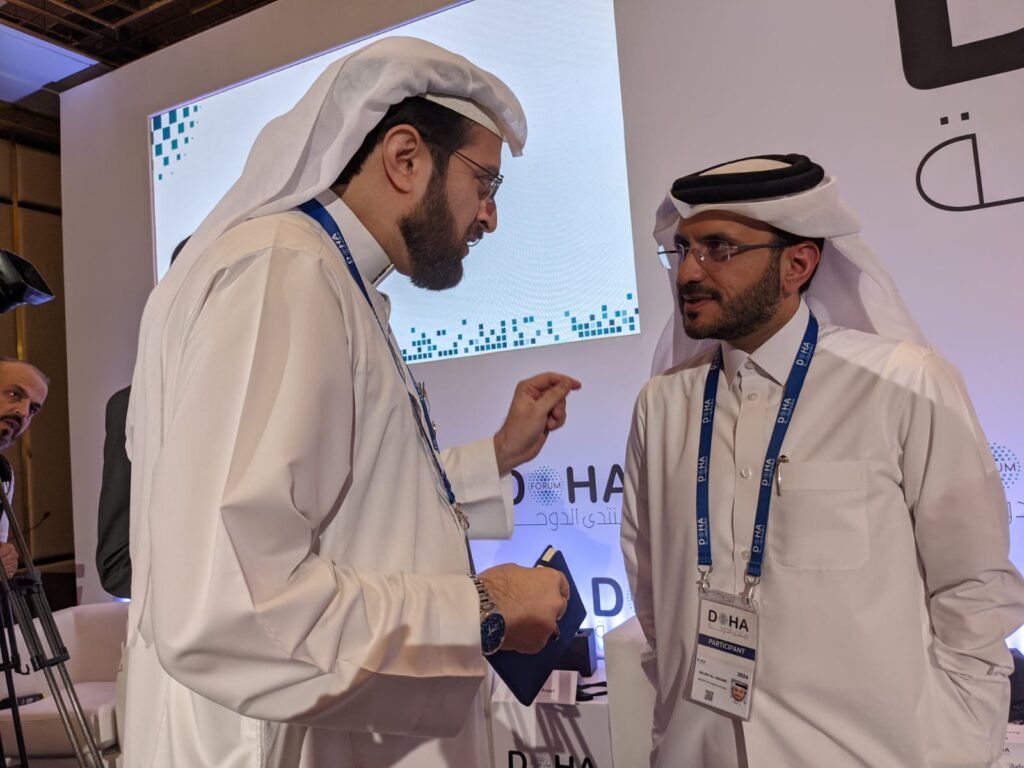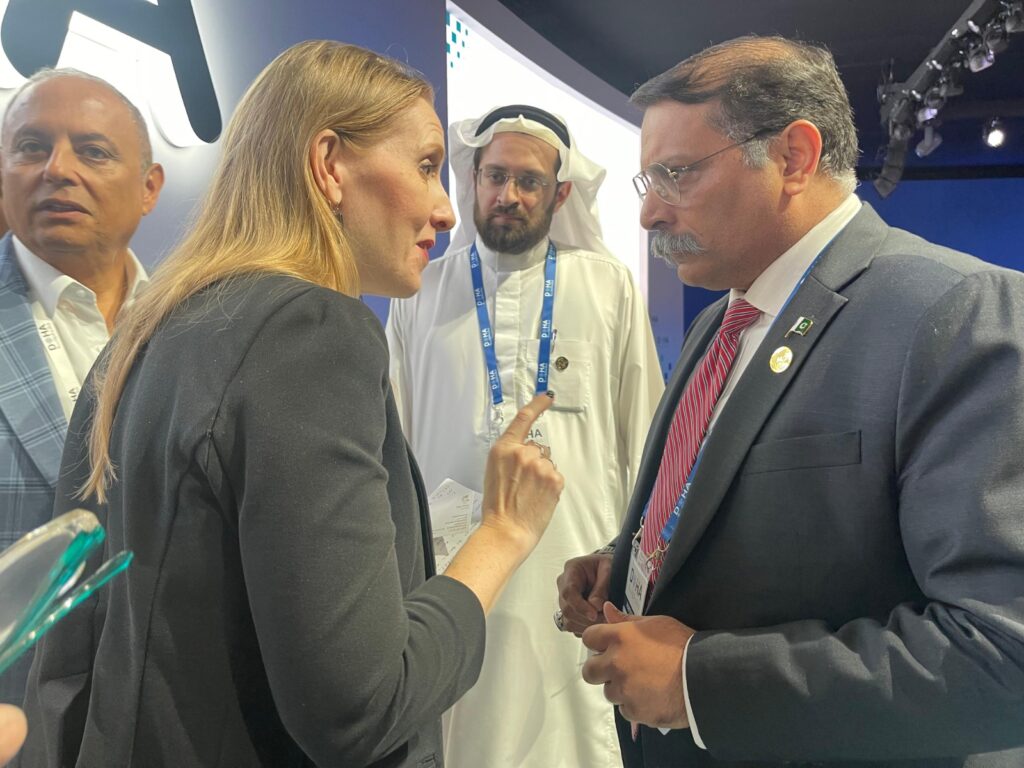The forum focused on inclusive global
governance as a vital approach to tackling
interconnected global challenges
Foreign Correspondent

DOHA, Qatar: The Doha Forum 2024, held from December 7-8, positioned itself as a leading platform for addressing pressing global challenges. World leaders, policymakers, and thought leaders gathered in Doha to discuss solutions for critical issues such as climate change, economic inequality, and regional security, including the ongoing crises in Palestine, Syria, and Ukraine. Among the distinguished attendees was the Global Peace Summit (GPS), representing Pakistan and emphasizing its commitment to fostering international cooperation and dialogue.
Inclusive Global Governance: A Central Theme
The forum focused on inclusive global governance as a vital approach to tackling interconnected global challenges. Speakers underscored the necessity for collaborative solutions to address issues like economic disparity, environmental degradation, and geopolitical tensions. GPS representatives advocated for innovative governance that empowers developing nations to shape international policies.

Climate Action: A Global Imperative
Climate action was a major topic at the forum. UN Secretary-General António Guterres called for immediate and collective efforts to address climate change, emphasizing sustainable development goals. GPS highlighted Pakistan’s vulnerability to climate change and advocated for stronger international support. Ambassador Stefano Pontecorvo of Italy praised GPS’s proposals on climate resilience.
Bridging Economic Inequality
The forum also addressed economic inequality. Discussions explored models to bridge the gap between developed and developing nations. GPS proposed trade and investment opportunities between Pakistan and the Middle East, emphasizing the need for economic integration and technology transfer.
Peace and Security: A Shared Responsibility
Regional security remained a key focus of the forum, with experts discussing strategies to promote stability and resolve conflicts through diplomacy. GPS offered insights into geopolitical shifts, emphasizing dialogue and mutual understanding. Dr. Khalid Al-Faisal, Saudi Arabia’s Minister of Education, commended GPS’s innovative approaches to fostering peace.

GPS: Pakistan’s Key Contributor at the Forum
As the only Pakistani think tank represented at the Doha Forum, GPS played a pivotal role in shaping discussions on issues like the Gaza conflict and the Ukraine war. GPS’s contributions included models for regional conflict resolution and economic integration.
Executive Director Shozab Majeed said, “The Doha Forum provided a platform for global leaders to address pressing challenges. As a global think tank, we are proud to contribute to these discussions and promote cooperation and peace.”
International Recognition of GPS Contributions
GPS’s contributions were recognized by international delegates. Dr. Tarik M. Yousef, Director of the Middle East Council on Global Affairs, praised GPS’s stance on Palestine, while Dr. Tamer Qarmout from the Doha Institute acknowledged GPS’s innovative strategies for regional cooperation.

A Forum for Global Progress
The Doha Forum 2024 concluded with a renewed commitment to dialogue and collaboration. The forum highlighted the importance of inclusive discussions in addressing urgent global issues, with GPS’s participation symbolizing Pakistan’s active engagement in international policymaking.
Looking Forward
As the world faces complex challenges, events like the Doha Forum remain vital for fostering global cooperation. The outcomes of this forum offer a roadmap for progress and remind us of the importance of collaboration in shaping a sustainable and equitable future. For Pakistan, GPS’s contributions at the forum mark a significant step in influencing global priorities and policymaking.























